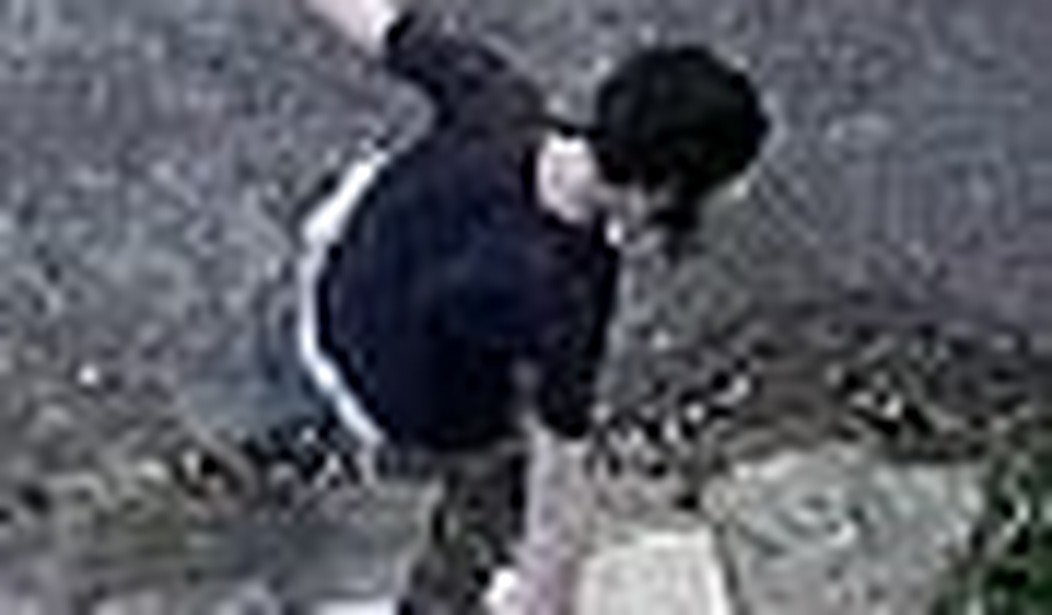A Jewish Intifada.
That is what the Israeli media warns the violent events that took place Thursday afternoon and evening in Hebron could escalate into.
The events Thursday began when, in a haze of tear gas and stun grenades, a relatively swift and easy evacuation of Jewish settlers from a disputed house in Hebron took place.
In what was described as a surprise move, the Israeli riot police moved in at about 2.30 p.m., forcibly expelling about 250 Jews who had defied a Supreme Court order to evacuate a disputed house (video clip here).
“Because the building is now empty does not mean that the event is over. I think there will be a price to be paid for this,” said David Wilder, a spokesperson for Hebron’s Jewish community as he watched the last of the some 200 people in the house, many of them teenagers from across the West Bank, get physically dragged out by police in riot gear down a dusty hill.
Indeed, it didn’t take long for hard-line religious nationalist Jews to seek payback — and they went on a rampage that the Israeli army did little to control. With new twin rallying cries of “not turning the other cheek” and extracting a “price,” the settlers, part of an increasingly radical and violent new anti-state element within the community, angrily entered nearby Palestinian neighborhoods. Dozens of settlers set ablaze Palestinian houses, fields, olive trees, and cars. In at least one case, an armed settler was filmed as he shot an unarmed Palestinian at point-blank range.
The response was not accidental, but part of a new policy embraced by their camp to cause as much mayhem as possible in response to any government crackdown. They hope that by taking as tough and violent a line as possible, they might succeed in scaring off the government from its policy of facilitating the eventual creation of a Palestinian state which would likely mean the uprooting of some West Bank Jewish settlements.
For the Israeli government and mainstream media, this was a grave new escalation in the ongoing dispute between the state and hard-line, anti-democratic settlers who increasingly reject the authority of the state’s institutions.
A group of religious-nationalist Jews had occupied the disputed four-story Hebron building since March 2007. Called the “House of Contention” by the media and the “House of Peace” by the settlers, it lies on a road that leads to the Cave of the Patriarchs. The site is revered by Jews, Christians, and Muslims as the burial place of Abraham, Sarah, Isaac, Rebecca, Jacob, and Leah. But that veneration has on several occasions been expressed with violence.
It is yet another chapter in the tense and bloody history of Hebron. In 1929, during the British mandate over Palestine and at a time of rising tension between competing Jewish and Arab nationalism, Arabs turned on the ancient Jewish community of Hebron and massacred 67 of them — including children and yeshiva students. The British authorities ordered all Jews evacuated from the city, which fell under Jordanian control after 1948. No Jews lived in the city from 1929 until 1967, when the Israeli army occupied the West Bank following the Six Day War. Shortly after that, a group of religious nationalist Jews took up residence in the heart of Hebron. Despite a heavy IDF presence, there are frequent outbursts of violence between the Jews and Arabs of Hebron.
In 1994, an American-born settler named Baruch Goldstein infamously opened fire on a room full of Muslims at prayer, killing 29 and injuring 125. The enraged crowd bludgeoned him to death. While the majority of Israelis expressed shame and revulsion at Goldstein’s act, for some he was a hero — as witnessed by his well-tended gravestone in the nearby Jewish settlement of Kiryat Arba. Today, about 500 Jews live in the heart of Hebron, amongst some 170,000 Palestinians. They exchange verbal insults, vandalize one another’s property, and commit violent attacks on a regular basis.
Following this latest outburst, in an attempt to prevent more extremist supporters from entering Hebron, the IDF has declared the area a closed military zone.
There are at least three conflicting narratives about the latest round of violence in the West Bank’s most volatile city.
The hard-line settlers’ narrative: This land was promised to the Jews by God. We are carrying out a holy mission by living here, as our forefathers lived here during biblical times. It is inconceivable that Jewish soldiers should evict Jewish civilians from their homes anywhere — let alone in one of the holiest sites in Judaism. We capitulated too easily during the evacuation from Gush Katif. That won’t happen again. Besides, we bought the land fair and square. American-Jewish businessman Abraham Morris says that he has documented proof of having purchased the House of Contention from a Palestinian landowner.
Much of this group, which has been nicknamed “Hilltop Youth” for illegally setting up outposts on West Bank hilltops, say they also felt betrayed by the mainstream settler leadership who sold them on slogans that love would conquer all and had promised them that non-violent demonstrations were the correct path.
“I would go all the way — I would not let anyone do anything to take our land away from us,” said a 19-year-old young woman who preferred not to reveal her name, one of those who had spent several days living in the contested Hebron house.
The mainstream settlers’ narrative: These kids who are making all the trouble in Hebron are outsiders. They do not represent our youth, who are devoted to their religious studies and serve loyally in the IDF. But on the other hand, the government is using a tiny minority amongst us in order to incite mainstream Israel against the settler movement by claiming that we are all a bunch of extremists who reject the rule of law. This is cynical manipulation by the government, which is trying to show the Americans and the Palestinians that they are keeping their promise to work toward a Palestinian state. And furthermore, why shouldn’t a Jew live anywhere he wants in Israel?
The Palestinians’ narrative: The Palestinian who allegedly sold the property to Abraham Morris claims he was duped. In one version he says he did not realize he was selling to a Jew, let alone a settler; and in another version, he says the sale never took place at all and that the settlers invaded the house. For the Palestinians the legitimacy of the sale is irrelevant. Pointing to the Muslim gravestones across from the house spray painted with stars of David and anti-Muslim slogans and other evidence of vandalism, they say it is clear the Jews occupying the house have come to make trouble.
The Israeli government’s narrative: The settlers are defying the law. The Supreme Court ruled (Hebrew link) that the army had the right to force the occupants of the disputed house to leave. Jews who live in Hebron require a heavy IDF presence for protection and we refuse to assign more money and more troops to protecting a small ideological group that is “motivated by hatred for the State and hatred for police.” Kadima leader Tzipi Livni delivered a speech in which she declared that Israel would not tolerate a “Wild West state” in Hebron.
Meanwhile, there is one big winner in all this mess — Hamas. The Islamist party lost no time in pointing out that its bitter rival Fatah, led by President Mahmoud Abbas, could not provide any protection for the Palestinian residents of Hebron. Last month a U.S.-trained battalion of Palestinian Authority security forces was very publicly deployed in the areas of Hebron that are supposed to be under PA control. But Abbas, fearing an escalating conflict, would not give the order to deploy the forces against the settlers. Officially the IDF was supposed to do the job — but did not.
The specter of more violence and the youth’s unwavering ideological stance and willingness to break taboos against Jews attacking others Jews, is prompting a wave of public hand-wringing.
The Israeli media appealed to Jews’ historical memories of their persecutions of their own people by dubbing the rampages nothing less than pogroms. Black smoke filled the darkening sky as olive groves were set ablaze and attempts were made to set Palestinian homes on fire. Video footage captured a gun-toting settler opening fire on two members of a Palestinian family and in one case Israeli journalists tried to protect a Palestinian family from a mob of settler youth as they waited for security forces to arrive.
Writing in Friday’s Yediot Ahronot, Nahum Barnea, one of Israel’s leading commentators, warned that grim days lie ahead: “The continuation will not be in this house, but elsewhere, and it will be harsh and cruel. Arabs will attack Jews. Jews will attack Arabs. Jews will attack Jews. The hatred is great, and too many elements have an interest in fueling it.”
And in a strongly worded editorial in Haaretz entitled “Standing Up to Jewish Terrorists,” a call was made to reign in what is being seen as a dangerous movement within the settler community.
The time has come to cease the vague characterizations and call a spade a spade. We are not dealing with “marginal groups,” “extremists who have gone out of control,” and other attempts at verbal acrobatics that are designed to paper over a harsh reality. For a long time now, settlers in Hebron and other areas of Judea and Samaria (and East Jerusalem) have engaged in unruly behavior whose only goal is to violently threaten the Palestinians while undermining Israel’s sovereignty. By any official standard recognized worldwide, this is terrorism that sows fear and disrupts the proper management of a state.
A similar warning was sounded by columnist Ben Caspit, writing in Maariv.
These are not errant weeds, we are talking about a well-ordered organization with a hierarchy, with rabbis, with separate incitement, with a combat doctrine and with weaponry. The worst thing is that they have messianic insanity in their eyes and deep self-persuasion in the justness of their path and the need to rise heavenwards in blood and fire and smoke. This monster has to be stopped now. Afterwards, it will be too late.









Join the conversation as a VIP Member